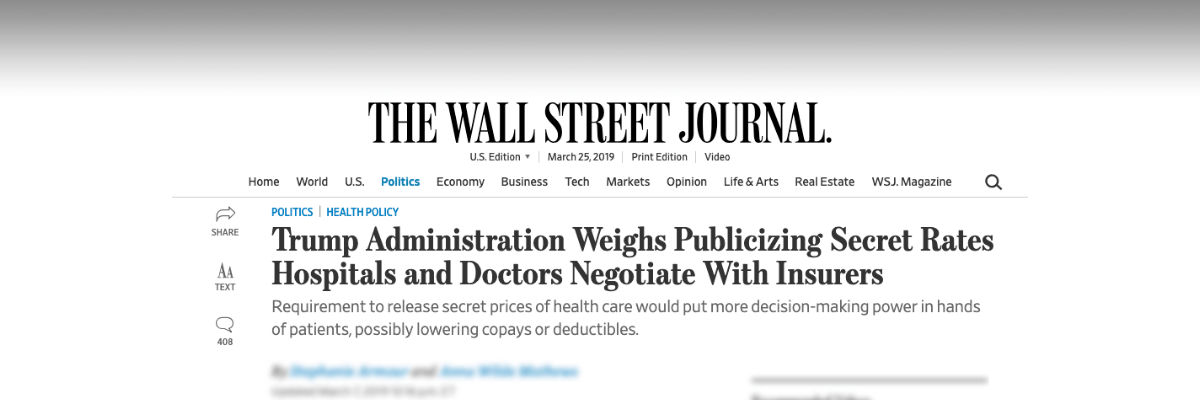That probably sounds like a simple question to some, and a very difficult question to others. Personally, I think it’s an impossible question to answer. And yet…no one has ever told me I was unqualified to bake a chocolate cake or to make wise decisions about the ingredients I would buy to bake the cake.
Full disclosure: I am a pretty good cook, but I can’t bake and, for some reason, I can’t make rice. Despite these horrible truths, no one tells me I cannot if I so choose (except my wife and kids).
There are many decisions to be made before buying the ingredients to bake a cake. How big will the cake be? How many will it serve? What shape will it be? How tall? Does anyone who is going to eat the cake have an allergy to any of the ingredients I might use? Does anyone simply have a preference I need to know about (e.g., no gluten, which means it has to be flourless?). Will there be layers? Will it be frosted? What kind of frosting? Is there any filling? Will there be nuts, or fruit inside or on top of the cake?
It is unlikely that unless you and I are handed the same recipe by someone, we will choose the same answers to all of these questions. And even if we did choose the same answers, we might still choose different ingredients, or different brands of ingredients. So isn’t it odd that those of us who occasionally bake a cake at home seem to do just fine with all of the uncertainty and decisions?
Of course, if we wanted to know the true cost of baking the cake, we’d have to answer some other questions, too. For example, what temperature will the oven be set to and for how long? Is it preheated? What does it cost to heat the over to that temperature (i.e., what’s the cost of gas or electricity)? Should we book any depreciation to the oven to account for the wear and tear we’re going to put on it? What is the time of the baker worth?
And still, we seem to make pretty good decisions. For some of us, we don’t know that much about one cake mix or another, or the quality of the flour we buy, but no one tells us we cannot make value-based decisions because baking a cake is too complicated. You see the market for cake ingredients works. It’s competitive, prices of the ingredients are fair, and yet no one can answer the simple question: what’s it cost to bake a chocolate cake?
That’s why I scratch my head when I’m told that we consumers (a.k.a. patients) aren’t qualified to make healthcare decisions and that medical procedures are too complicated to tell us the price. It also seems that government officials and the healthcare industry don’t really understand what we mean when we say we want the price. It doesn’t always mean the price of the procedure or the price of the hospital stay.
Sometimes, I just go to the supermarket and buy a cake (like on my wife’s birthday). In that case, they give me the price of the cake. It’s simple. Think of that like the price of having your tonsils out. It’s fairly simple.
Other times, though, I buy some ingredients and then use other ingredients I already have at home. I can’t really tell you the exact cost of the cake, and that’s OK. As long as the supermarket was fair, honest and transparent with the prices of the ingredients I bought, the market works. Because the prices are right there on the shelf in the supermarket, I know I’m not being gouged and I trust that prices reflect a fair market value.
********************
The above example came to me as I was reading through the 187-page (9-point font) set of proposed new Federal rules that include provisions for increased price transparency in healthcare. The relevant information begins on page 7513, which is the 90th page in the PDF document found near the top right of this page. While the President, his staff, the Secretary of Health and Human Services, and his staff already know what the right answers are to the questions posed on page 7514, they must go through the process of asking for public comment. That’s the law. The comment period is open until the first week of May. I encourage you to submit your comments now. You can do it at the top of the same web page by simply clicking the button that reads, “Comment Now!” While I encourage everyone to thoughtfully read the proposed rules and to register your own comments, at a minimum, comments that read like these would be very helpful: “Let the market work.” “Make the net price truly transparent.” “Don’t try to engineer the market.” “Trust that we consumers are smart enough to handle things if only we had prices.” And my favorite: “I can bake a cake. So I think I can choose my own healthcare services, too, if only I had the prices.”
As an example, one of the questions posed about ¾ of the way down the first column on page 7514 is whether there should be exceptions to transparent pricing for “unscheduled care, such as admissions subsequent to an emergency visit,” or for “Emergency care…such as for patients in need of immediate stabilization.” The clear answer is “NO!.” There should be “No Exceptions.” What federal regulators appear to still be missing is that fact that sometimes, we’re just baking a cake. We don’t need to know the actual cost of the cake, we just need to know the prices of the ingredients that might go into our cake. It’s that simple. A hospital, and a doctor, need to tell us the price of everything that they MIGHT do, whether or not it’s what we need today.
Many will ask how that helps patients. The answer is simple…it helps the market. And if it helps the market work, ensuring prices are fair and competitive, it doesn’t matter what the specific services are that we need today. I will write more about why price transparency is about markets, not individual consumers, in a few days. I encourage you to watch for it. It’s one of the most important principles that we have to fight for. I spent over an hour with two members of the President’s Council of Economic Advisers back on the same day as the State of the Union discussing this very topic. In a couple of days, I’ll share the ideas we discussed with you, too.
********************
The rules that are being proposed are intended to deliver what we’ve all been looking for—a truly transparent, functional market. But just because the rules have been proposed doesn’t mean they will be enacted. While I know first hand from my dealings with the White House that the intentions are to do the right thing, I also expect that more money will be spent on lobbying over the next three months than was spent over the prior three years. The healthcare industry knows what real price transparency–from both providers and insurance carriers–means. It means an end to easy and excessive profits. It means a competitive market that begins to serve patients, not multi-billion-dollar monopolies. Good companies will survive—and thrive. Those that can’t compete and don’t add value, will not. And that frightens many that are profiting from economic dysfunction today.
There were two recent headlines in the Wall Street Journal that you should be familiar with, even if you don’t have a subscription to read the complete articles:
March 7th: Trump Administration Weighs Publicizing Secret Rates Hospitals and Doctors Negotiate with Insurers.
March 11th: Hospitals, Insurers Set to Resist Price Transparency Proposal
The time has come. All of the work done by the many people in Colorado (and those beyond Colorado who supported these efforts) is coming to fruition. It’s time to push things over the goal line.
I’d like to call out a few of the people who have helped us get here, because I’m not sure they realize just what a big difference they have made.
- State Representative Mike Foote (now Senator Foote), who sponsored the initial Colorado Legislation.
- State Representative Susan Beckman, who was Mike’s Republican Co-sponsor in the Colorado House.
- Senator Tom Coburn of Oklahoma who saw what was happening in Colorado and wrote about it in the Wall Street Journal, thereby bringing national attention to the efforts in Colorado.
- Cynthia Fisher, of Boston, who read Senator Coburn’s article, supported Coloradans despite living in Massachusetts, and introduced me to key people in Washington.
- The Colorado Libertarian Party, which had the courage to formally endorse and support the Colorado legislation and ballot measure. The party even collected signatures for the ballot measure.
- State Representative Patrick Neville, the Colorado State House Minority Leader, who despite push back from some of the fiercest lobbying groups that hold sway over Republicans, stood his ground last year and supported Rep Beckman’s decision to co-sponsor the legislation and encouraged other Republican’s to resist the lobbies and support the bill that ultimately failed in Colorado.
There are many others who have supported our efforts along the way, but those above are the ones who stand out as having ensured our message made it to Washington.
So, read the new rules and submit your comments. If it doesn’t happen now, there’s a very good chance that it never will. The system is close to the point of no return, which means never getting to a market driven healthcare system. It will either be a government run system, or something even worse—an oligopoly that continues to strip the American middle class of its wealth and freedom. There is actually great risk that we get the worst of both options–a government run system that is then contracted to a small number of mega-companies. Were that to happen, our healthcare system would begin to resemble the defense industry.
My next two pieces will include:
- Why price transparency is about the market, not the individual consumer and
- Understanding what Medicare for All means, so you can make an informed decision about whether you support it or not (don’t be so sure of what you believe right now, whichever side you think you are on)
Please go submit your comments now!



